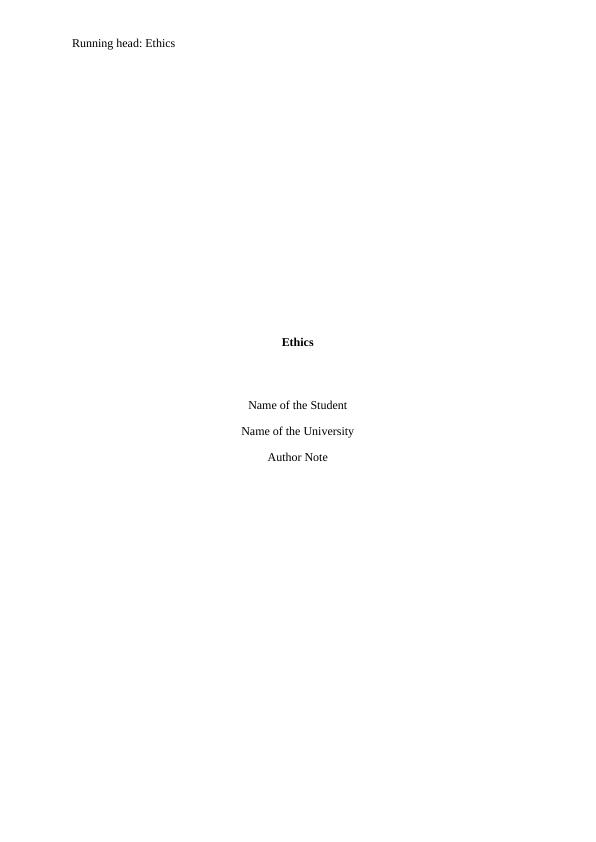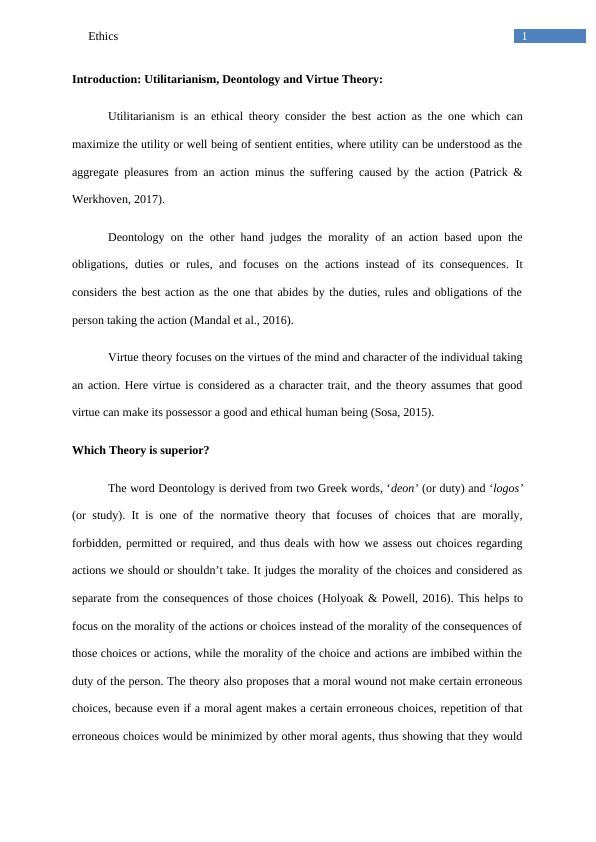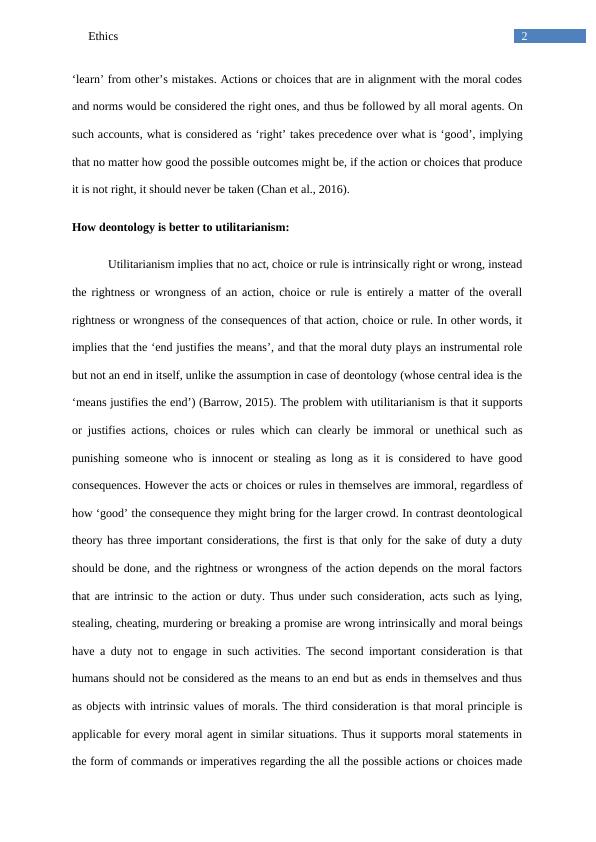Deontology: A Superior Ethical Theory for Professional Practice
8 Pages2068 Words445 Views
Added on 2023-06-10
About This Document
This article discusses the superiority of deontology over utilitarianism and virtue theory in professional practice. It explains the concept of deontology and how it focuses on the morality of actions themselves instead of their consequences. It also highlights the challenges and limitations of deontology.
Deontology: A Superior Ethical Theory for Professional Practice
Added on 2023-06-10
ShareRelated Documents
End of preview
Want to access all the pages? Upload your documents or become a member.
IT Ethical Issues
|7
|1706
|198
Ethical Decision Making: A Case Study of James Hardie Scandal
|5
|1349
|432
Risk perception and Analysis - Assignment
|6
|1646
|28
Topics in IT Ethics: Data Collection: “Harvesting” Personalities Online
|7
|1423
|23
Ethical Issues in IT
|6
|997
|23
Corporate Governance, Financial Crime, Ethics and Control
|8
|2674
|208



